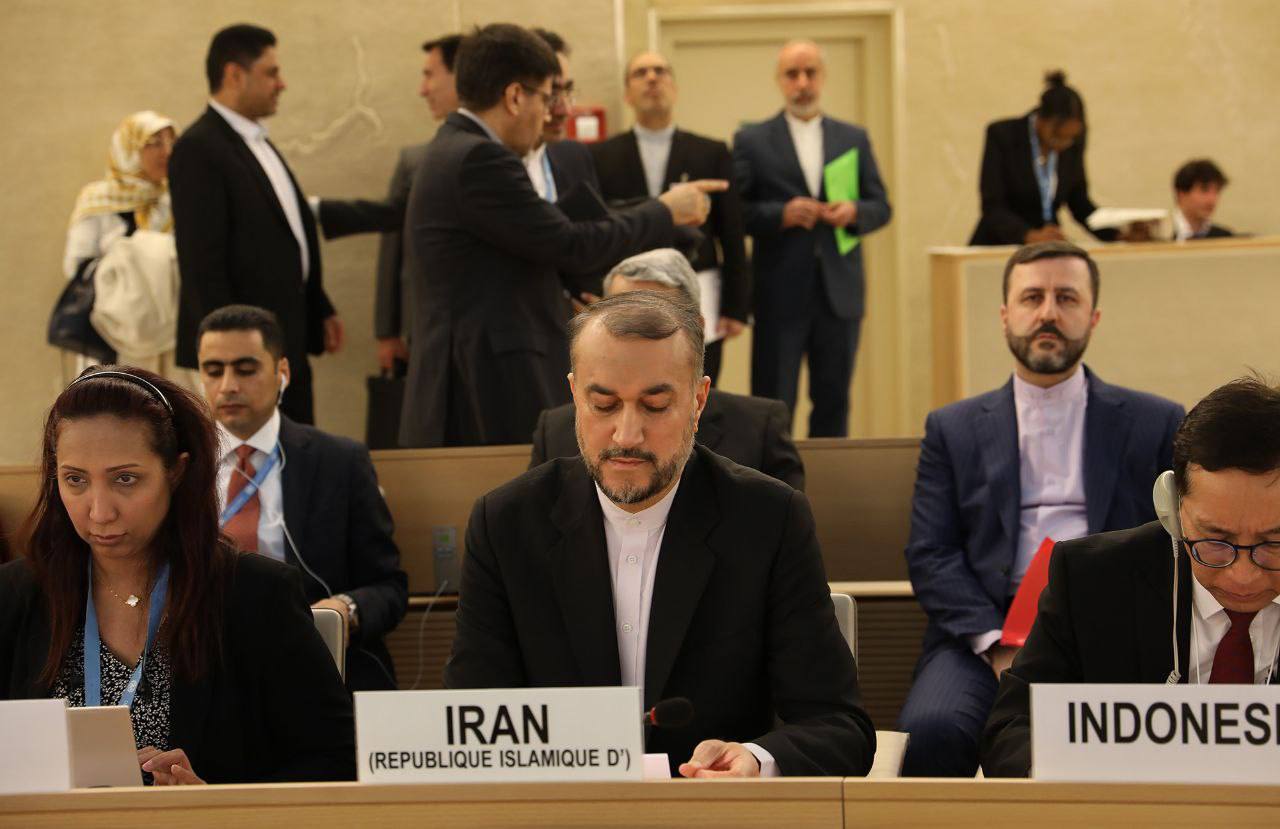Iran FM: JCPOA failed because of U.S. miscalculations and policies
WANA (Mar 01) – Iran’s Foreign minister, Hossein Amir-Abdollahian visited Geneva for the 52nd session of the UN Human Rights Council. During this event he met with several high-ranking officials and held bilateral meeting with representatives of other countries such as Armenia and Belarus.
Amir-Abdollahian declared that his presence in this session is to clarify the realities taking place in the Islamic Republic for the world, distanced from the heavy propaganda aimed at the country since the anti-government protests that started 6 months ago. Talking to reporters he said “the enemies of Iran have been taking advantage of the unrest to create chaos, instability and terror”. The Foreign minister used this chance to describe Iran’s stance on the events that took place since September, defending Human Rights conditions in Iran.
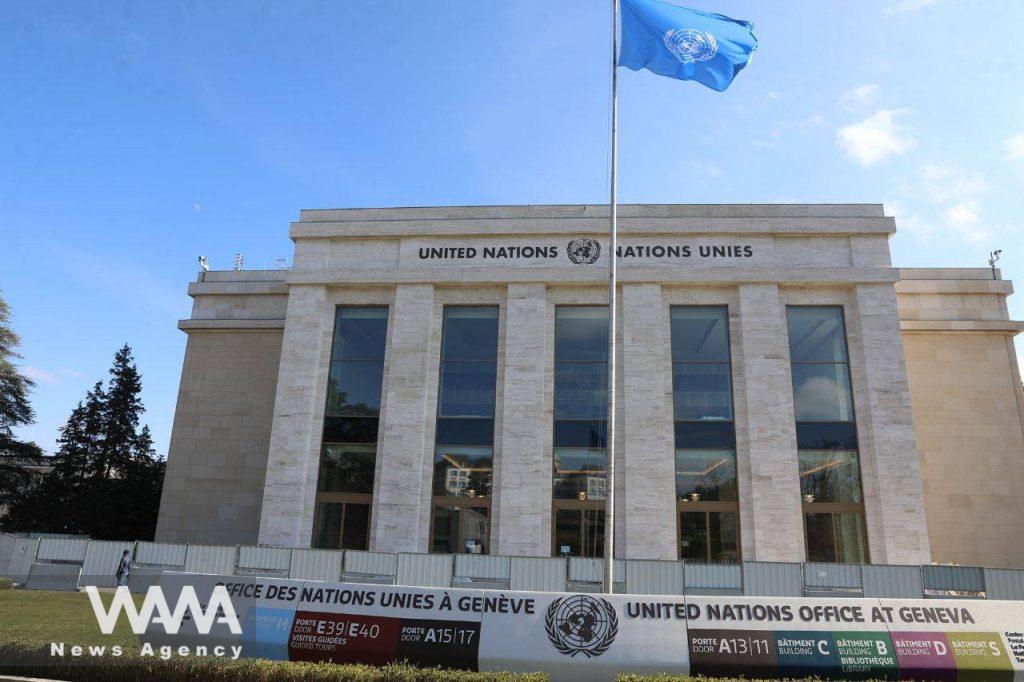
The speech of Dr. Hossein Amirabdollahian, Minister of Foreign Affairs of Iran, at the 52nd session of the United Nations Human Rights Council in Geneva. Feb 27,2023. Iran FM office / WANA News Agency
Another main objective for attending this annual session was the high-level segment of the Conference on Disarmament, where the foreign minister delivered a statement. Amir-Abdollahian addressed the 2015 Iran nuclear deal, officially known as the Joint Comprehensive Plan of Action or the JCPOA, blaming the U.S. for the present deadlock in talks.
“The current status of the JCPOA is a result of U.S. miscalculations and policies,” he said. The top diplomat noted Iran is ready to continue the talks until a deal is reached, adding that the few remaining issues regarding the agreement’s revival can be addressed easily.
“Without any preconditions and through goodwill and determination of all parties and within the framework of the negotiations held until now, the final steps of the talks can be taken,” he said.
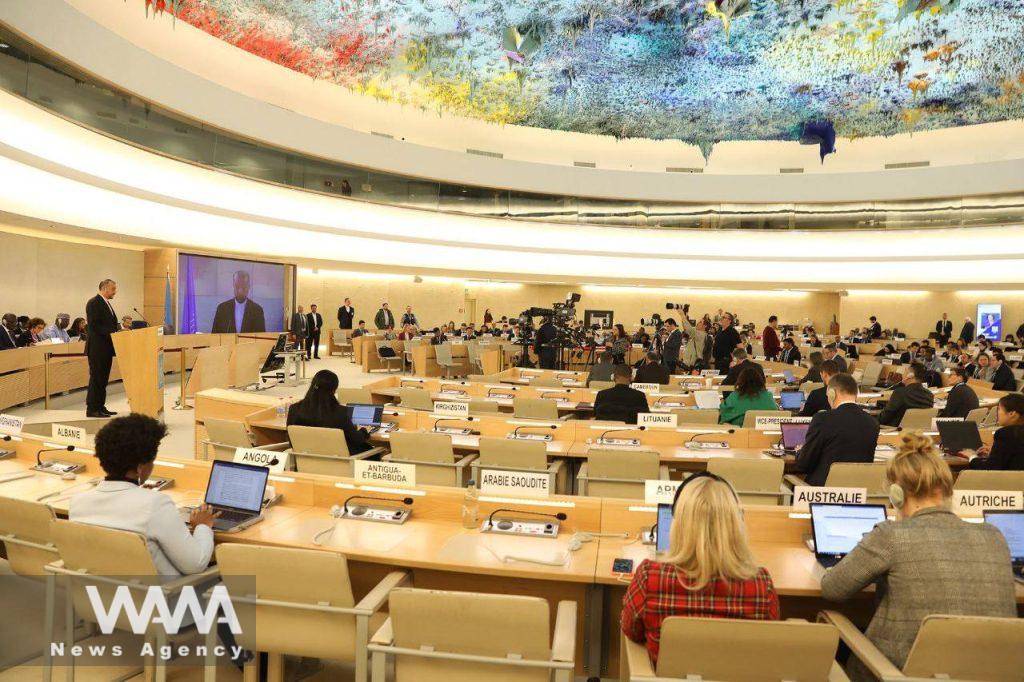
The speech of Dr. Hossein Amirabdollahian, Minister of Foreign Affairs of Iran, at the 52nd session of the United Nations Human Rights Council in Geneva. Feb 27,2023. Iran FM office / WANA News Agency
Amir-Abdollahian reiterated that Iran’s nuclear program is peaceful and will remain so forever. Iran overturned its compliance with the 2015 accord following the U.S.’s unilateral withdrawal from the deal in 2018 and re-imposing sanctions on Iran.
Tehran and the remaining signatories to the deal have held talks on reviving the deal since April 2021, after Joe Biden came to power in the U.S. But the talks have been stalled for months amid Washington’s refusal to remove all sanctions and provide guarantees that it will not abandon the agreement again.
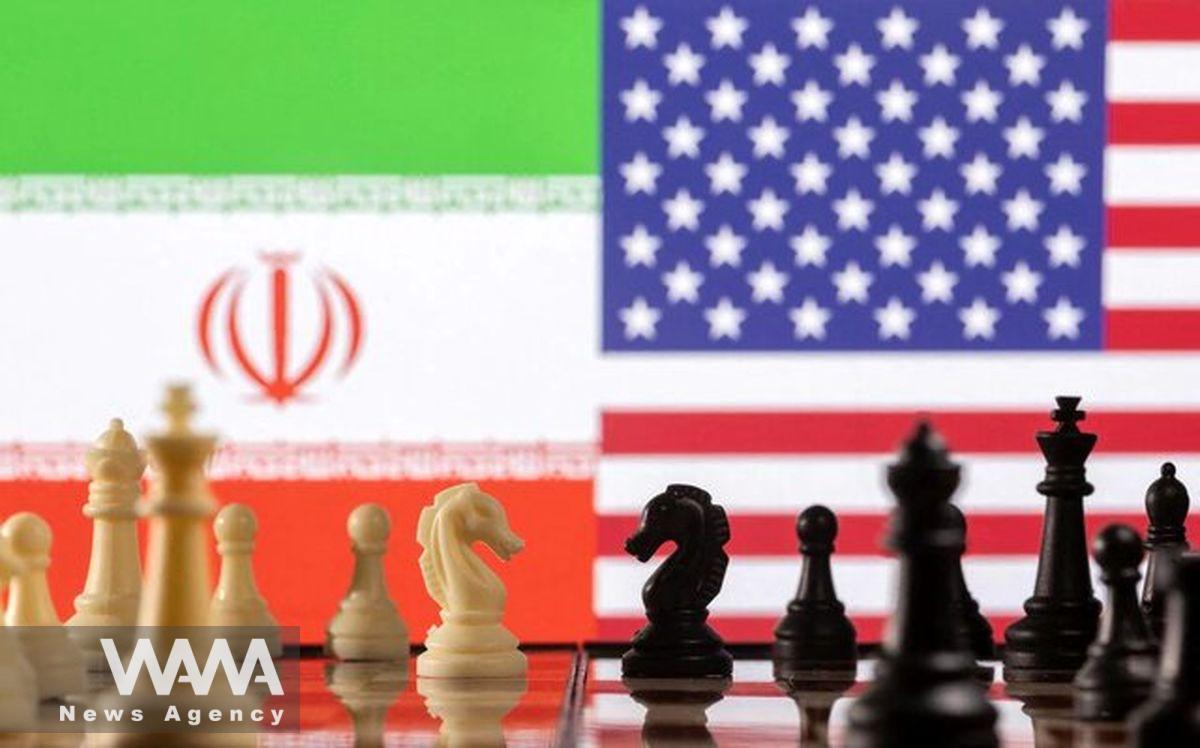
“we will not be far from an agreement” Abdollahian said
WANA (Feb 26) – Iran’s Foreign Minister Hossein Amirabdollahian, who headed a delegation to Baghdad last week at the official invitation of Iraq’s Foreign Minister Fouad Hossein, said in an exclusive interview with Al-Alam news channel: “We sent this message to the authorities of the Kurdistan Region in recent months, we have made it clear […]
The U.S. for its part, has held a contradictory stance vis-à-vis Iran. In his visit to Baghdad last month, Iran’s foreign minister said his country has been receiving paradoxical messages from Washington.
In November, the U.S. special envoy for Iran, Robert Malley blamed Iran for the failure of the talks to revive the agreement, saying Iran rejected a deal proposed in August by three European countries – Germany, France and the UK.
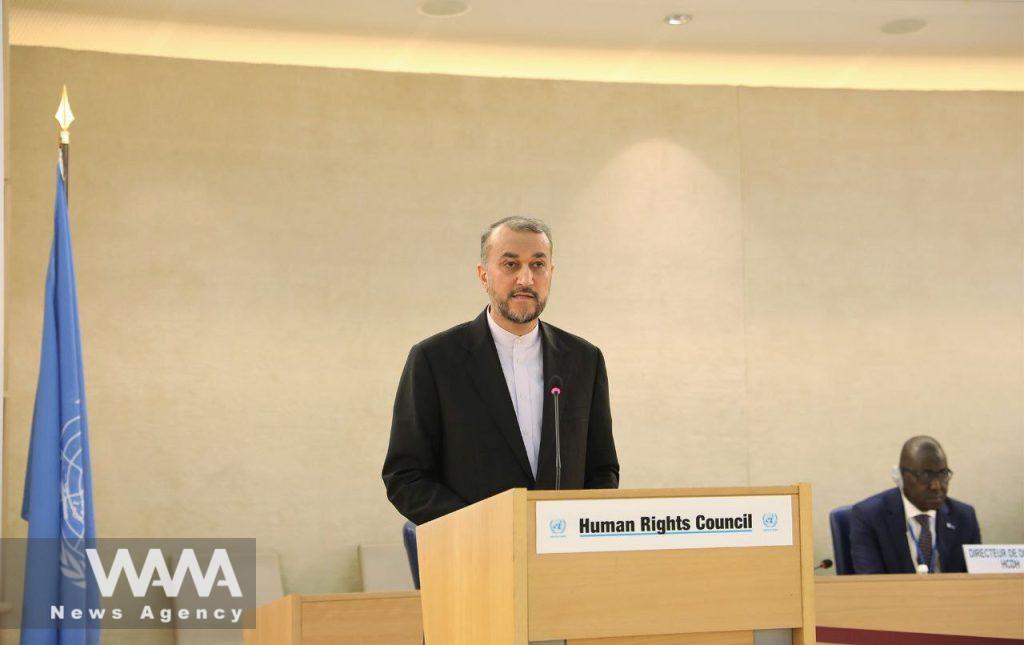
The speech of Dr. Hossein Amirabdollahian, Minister of Foreign Affairs of Iran, at the 52nd session of the United Nations Human Rights Council in Geneva. Feb 27,2023. Iran FM office / WANA News Agency
He said the JCPOA is not on the agenda anymore, adding that Washington is now focusing on its policy of pressure and sanctions on Iran as well as supporting the protests in the country. However, he added that the U.S. will leave the door open to resume diplomacy “if” the time came.
Iranian officials have time and again claimed to have received messages from the American side on nuclear negotiations while at the same time, the U.S. is pushing through with its “maximum pressure” campaign against the Islamic Republic. Iran argues that the western sides have been untrustworthy in their compliance with the JCPOA, and many steps must be taken to build confidence between all parties.
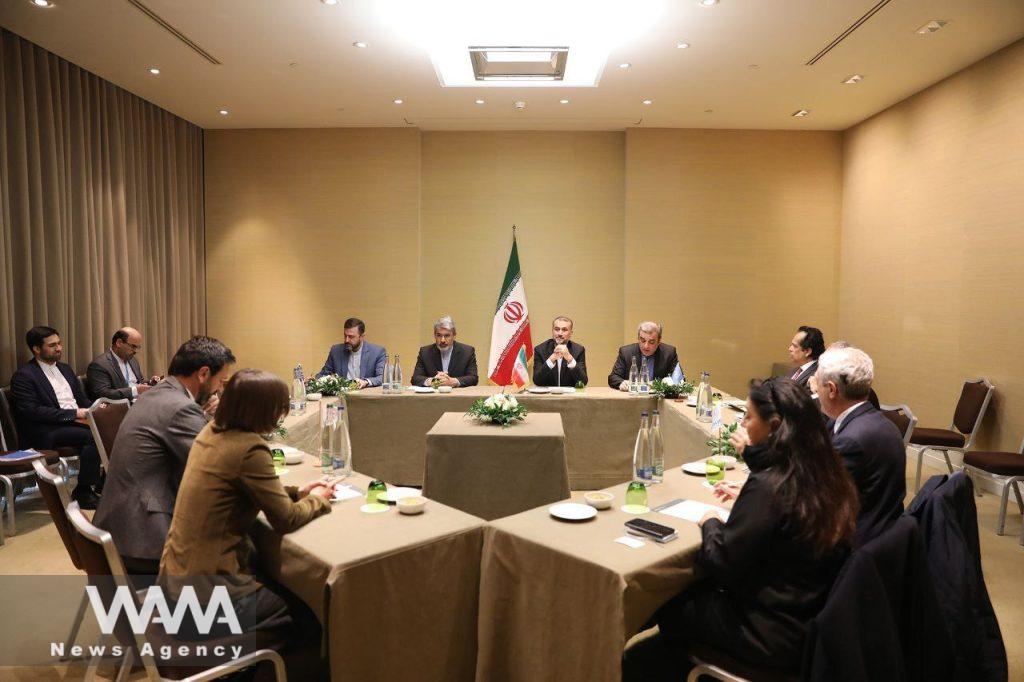
A five-sided meeting on humanitarian issue in Geneva. Feb 28.2023. Iran FM office / WANA News Agency
Ever since protests and anti-government riots erupted in Iran following the death of a young Iranian woman in September, the United States has been walking on eggshells regarding the nuclear talks. Washington being a huge supporter of the protests, is aware that any attempt made to reach an agreement with Iran will be criticized as undermining the protesters and legitimizing the Islamic Republic.

